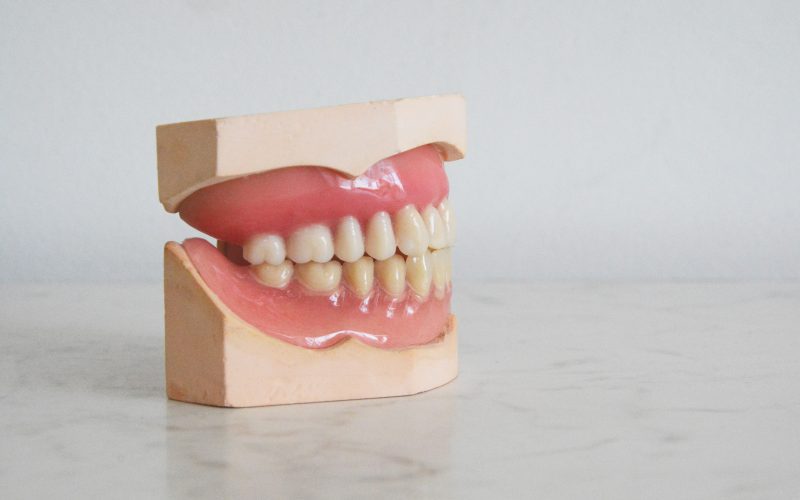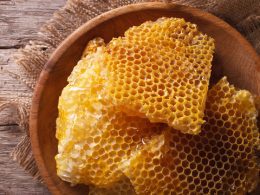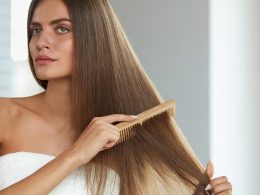Are you tired of looking in the mirror and seeing discolored teeth staring back at you? Well, before you go spending a fortune on expensive whitening treatments, take a look at your diet. What we eat and drink can have a significant impact on the color of our teeth. In this blog post, we will explore some common foods and drinks that are notorious for causing teeth discoloration. Keep reading to find out what to avoid if you want to achieve brighter, whiter teeth!
Coffee
Coffee is a morning staple for many of us, but unfortunately, it’s also one of the biggest culprits when it comes to teeth discoloration. The dark color and high acidity level in coffee can cause stains on your teeth over time.
When you drink coffee, the pigments from the beans stick to your tooth enamel, causing yellow or brown stains. In addition to this, caffeine dries out your mouth and reduces saliva production which leads to bacteria buildup that can make tooth staining worse.
To reduce teeth staining caused by coffee consumption, try drinking through a straw or rinsing with water after finishing your cup. You could also consider switching to lighter blends or adding milk (which contains calcium) as this neutralizes acid levels in drinks like coffee helping prevent further damage.
If you simply can’t imagine starting your day without a steaming cup of joe, be sure to brush and floss regularly!
Tea
Tea is a popular beverage that many people enjoy due to its taste and health benefits. However, it’s also one of the teeth-discoloring foods and drinks that you should be aware of.
The main culprit in tea that causes teeth discoloration is tannins, which are natural compounds found in tea leaves. Tannins can stick to your tooth enamel, causing stains over time. The darker the tea, the more tannins it contains.
But don’t worry – you don’t have to give up tea altogether if you want whiter teeth! There are some tips you can follow to minimize staining from tea. Firstly, try drinking your tea through a straw so that it bypasses your front teeth. This may take some getting used to but could make a big difference.
Another way to reduce staining from tea is by adding milk or creamer as they contain proteins that bind with tannins and prevent them from sticking to the enamel. Also, brush your teeth after drinking black or green teas as this will help remove any potential stains.
There’s no need for avid tea drinkers to abandon their favorite drink entirely just because of its potential effects on tooth coloration; simply following these tips can go a long way in minimizing any negative consequences!
Wine
Wine is a popular alcoholic beverage that many people love to indulge in during social gatherings or after a long day at work. However, it’s important to be wary of its effects on your teeth. Red wine contains chromogens and tannins which can easily stain your teeth if consumed excessively.
Chromogens are compounds that give red wine its vibrant color while tannins are naturally occurring polyphenols found in grape skins, seeds, and stems. Tannins can cause the enamel on your teeth to weaken and become more susceptible to discoloration from other foods and drinks.
To minimize the risk of staining your teeth with wine, you can try sipping water alongside your glass of wine as this will help rinse off any excess residue left on your teeth. You could also consider brushing your teeth before drinking red wine as freshly brushed teeth tend not to absorb stains as readily.
While it’s okay to enjoy a glass of wine occasionally, excessive consumption can lead to tooth discoloration over time. So be sure to practice moderation when indulging in this beloved beverage!
Soda
Soda is a popular and refreshing drink that many people enjoy. However, it’s important to know that soda can cause tooth discoloration. The high levels of sugar and acid in soda can wear down the enamel on your teeth, making them more susceptible to staining.
When you drink soda, the sugars react with bacteria in your mouth to form acid. This acid attacks your tooth enamel and breaks it down over time. As a result, your teeth become more vulnerable to stains from other foods and drinks.
To avoid teeth discoloration from soda, consider drinking water or unsweetened tea instead. If you do indulge in a fizzy beverage every once in a while, use a straw to minimize contact with your teeth. Additionally, try rinsing out your mouth with water after drinking soda to help neutralize the acids.
It’s also important to keep up with regular dental cleanings and at-home oral hygiene practices like brushing twice per day and flossing daily. By taking care of your teeth properly and being mindful of what you eat and drink, you can help prevent tooth discoloration caused by soda consumption.
Curry
Curry is a popular spice blend used in many cuisines around the world. It adds flavor and depth to dishes, but unfortunately, it can also cause teeth discoloration. The bright yellow color of curry powder comes from turmeric, which has been known to stain teeth.
When consuming curry-based dishes, it’s important to rinse your mouth with water afterwards to prevent staining. Brushing your teeth immediately after eating may actually do more harm than good because the abrasive action of brushing can push the stains deeper into the enamel.
If you’re concerned about staining from curry, consider drinking tea or coffee with milk or cream as they can help reduce staining on your teeth. Another option would be using a straw when drinking beverages that are prone to causing tooth discoloration.
In addition to staining your teeth, some curries contain high amounts of sugar and acid which can damage tooth enamel over time. Be aware of how often you eat curries and make sure you practice good oral hygiene habits such as brushing twice a day for two minutes each time and flossing daily.
Enjoying curry in moderation is perfectly fine for most people but being aware of its effects on dental health is important so that you can take steps to minimize any potential damage.
Balsamic vinegar
Balsamic vinegar may be a tasty addition to your salads and marinades, but it can also contribute to teeth discoloration. This dark-colored condiment is made from grapes that have been aged in barrels for several years. During this process, the vinegar becomes more acidic and can erode tooth enamel over time.
Although balsamic vinegar is not as harmful as other acidic drinks like soda or citrus juices, it still poses a risk to dental health. The acidity of balsamic vinegar softens the enamel on teeth making them vulnerable to staining agents found in other foods.
To protect your pearly whites from becoming stained by balsamic vinegar, you should rinse your mouth with water after consuming any food that contains it. You could also try using a straw when drinking beverages mixed with balsamic vinegar.
Another way to minimize the impact of balsamic vinegar on your teeth is by brushing twice a day with fluoride toothpaste for at least two minutes each time. This will help remove any acids left behind in your mouth and maintain healthy oral hygiene.
In summary, while balsamic vinegar adds flavor to meals, it’s essential to recognize its potential harm towards our dental health. By rinsing our mouths with water or using straws when consuming such foods along with proper oral care practices we can reduce their effect on our teeth’s coloration!
Beets
Beets are often touted as a superfood, but did you know they can also cause tooth discoloration? These bright red root vegetables contain pigments called betalains which can stain your teeth.
Whether you eat them raw or cooked, beets should be consumed in moderation if you’re trying to maintain a white smile. Additionally, drinking beet juice can also have the same effect on your teeth.
If you do choose to indulge in this nutritious vegetable, consider pairing it with foods that help scrub away surface stains like apples and carrots. You could also drink water after eating or drinking anything containing beets to help wash away any potential staining agents.
While beets may offer numerous health benefits for your body, it’s important to remember their impact on dental hygiene as well. Enjoy them in moderation and take care of your pearly whites!
Foods and drinks to avoid for whiter teeth
When it comes to maintaining a bright and healthy smile, some foods and drinks are best avoided. To keep your teeth sparkling white, steer clear of dark-colored beverages such as coffee and tea. These popular drinks contain tannins which can easily stain your teeth over time.
Another culprit to watch out for is wine, particularly red wine. Its deep color can leave long-lasting stains on your pearly whites that are tough to remove with just regular brushing alone. Sodas also pose a threat as they contain high levels of sugar that can speed up the decay process in your mouth.
Spices like curry might add flavor to your meal but their intense pigments could stick onto tooth enamel leading to discoloration over time. Similarly, while balsamic vinegar adds richness to salads and other dishes, its acidic properties erode enamel making teeth more susceptible to staining.
Beets are another food item that is known for their powerful pigmentation abilities. Although rich in nutrients and fiber, the dark purple-red hue tends to leave noticeable stains on surfaces including teeth.
By avoiding these foods and drinks or consuming them in moderation along with proper oral hygiene practices like brushing twice daily with fluoride toothpaste will help you maintain a brighter smile!
Conclusion
It is important to keep in mind that while avoiding certain foods and drinks can help prevent teeth discoloration, it is also important to maintain good oral hygiene habits such as brushing twice a day and flossing daily. Additionally, regular dental check-ups with your dentist can help catch any potential issues early on.
By being mindful of what you consume and taking care of your teeth, you can achieve a brighter, healthier smile. So next time you reach for that cup of coffee or glass of red wine, consider the impact it may have on your pearly whites. Your smile will thank you!












